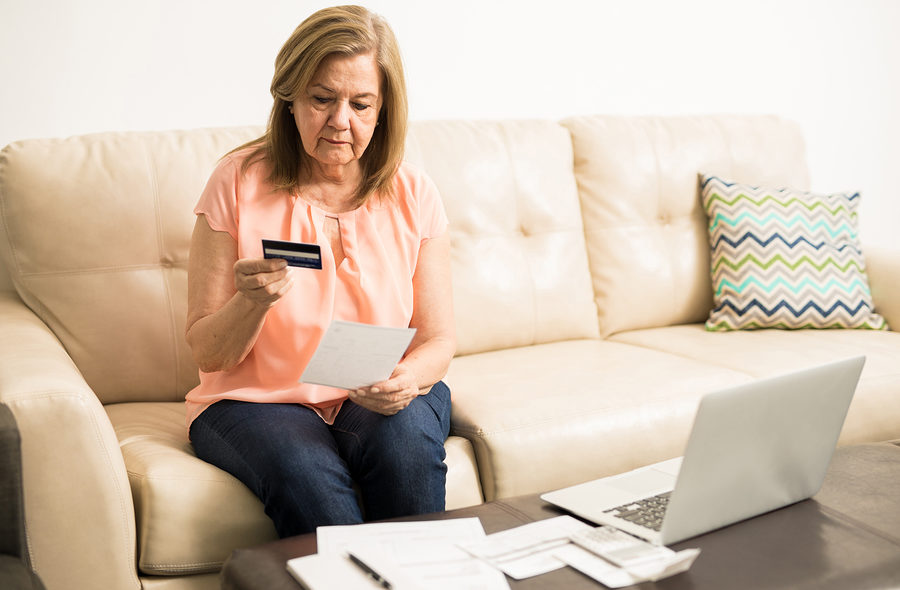When most people think of their retirement, they picture living a life of rest and relaxation. However, with credit card debt increasing for individuals over the age of 65, many are carrying this debt into retirement. Medical debt can compound the problem. When seniors face health issues, putting the additional out of pocket costs not covered by their insurance can be tempting. In fact, medical debt is the leading cause behind U.S. bankruptcy filings today.
Most senior citizens rely on a fixed income following retirement, whether it be money coming in from social security or retirement savings. This income could very well be enough to keep that person living a comfortable life. However, it only takes one major medical crisis or unexpected expense to turn a comfortable financial situation upside down. For seniors living on a fixed income, it can force them to put these unexpected expenses on credit cards.
If the person’s debt-to-income ratio is significantly unbalanced, and the person is struggling with unsecured debt, like medical bills or credit card debt, a bankruptcy filing may be the best way to proceed to eliminate that debt. A Chapter 7 bankruptcy case is the best route for seniors who wish to escape their unmanageable debt. To qualify, the filer needs to pass a means test to demonstrate that his or her income does not surpass set guidelines by the federal bankruptcy laws. While it can be difficult to qualify for a Chapter 7 bankruptcy filing under the means test, seniors do not have to claim social security benefits as income in the means test, which can make it easier for them to qualify for a Chapter 7 bankruptcy.
Most seniors have a large amount of equity in their homes, which is why many of them fear losing their homes during a bankruptcy. Fortunately for filers in Florida, the state’s bankruptcy homestead exemption is generous, meaning the filer should be able to protect his or her home no matter how much equity he or she has. If the individual is not current on house payments, a Chapter 13 bankruptcy may be the best way for him or her to catch up on payments while remaining in the home.
Money in retirement accounts are also protected under bankruptcy law, including all tax-exempt retirement accounts, 401(k)s, 403(b)s, pensions, and defined-benefit plans. Once retirement funds are withdrawn, however, they are treated as income and cash, so it is important that these funds remain in the retirement account.
Senior consumers can find bankruptcy to be an excellent way of eliminating medical debt and credit card debt while maintaining the assets that are important to them.
A person can spend years struggling with medical and credit card debt that would otherwise be eliminated in a Chapter 7 bankruptcy case. Someone’s age should not be a deterrent if bankruptcy is the best option for him or her. A bankruptcy attorney can meet with the individual free of charge to discuss his or her financial situation and determine the best path forward.
If you have questions on this topic or are in financial crisis and considering filing for bankruptcy, contact an experienced Miami bankruptcy attorney who can advise you of all of your options. As an experienced CPA as well as a proven bankruptcy lawyer, Timothy Kingcade knows how to help clients take full advantage of the bankruptcy laws to protect their assets and get successful results. Since 1996 Kingcade Garcia McMaken has been helping people from all walks of life build a better tomorrow. Our attorneys’ help thousands of people every year take advantage of their rights under bankruptcy protection to restart, rebuild and recover. The day you hire our firm, we will contact your creditors to stop the harassment. You can also find useful consumer information on the Kingcade Garcia McMaken website at www.miamibankruptcy.com.

